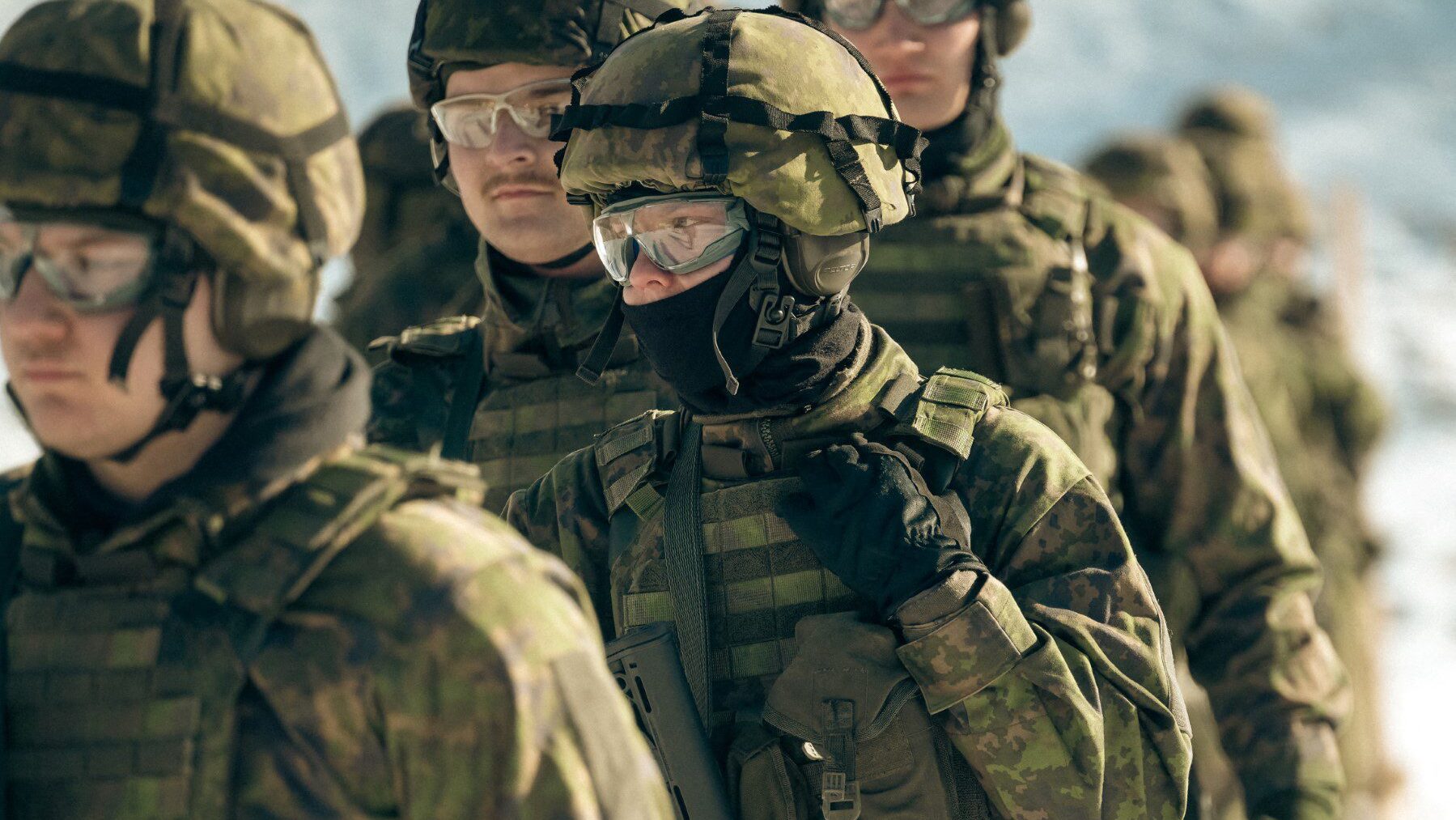
Finnish reservists of the Guard Jaeger Regiment take part in a military exercise at the Santahamina military base in Helsinki, Finland.
Photo: Alessandro RAMPAZZO / AFP
Against the background of the Russo-Ukrainian war threatening to spill over to directly involve NATO, the military reservist force of Finland, Russia’s neighbor, is bleeding members. The exodus from the force follows a newspaper interview where the country’s defense minister said he intended to ban reservists from resigning.
Speaking with Finnish daily Kyrönmaa in an interview published last Thursday, Finnish Defense Minister Antti Häkkänen (of the liberal-conservative Coalition Party) said that he would “look for ways to put things in order” during springtime so that it would no longer be possible to “escape” from the reserves. Leaving the reservist forces, Häkkänen said, was an “unpatriotic” act.
The next day, despite an attempt by Häkkänen to soften his tone, over 200 people (15 times the average) applied to leave the reserves and register for an auxiliary position (i.e., support personnel that assists the military).
Reservists who resign and apply for auxiliary service have to be able to prove that “their convictions have changed enough so that it prevents them from taking part in military activities.”
A person whose application has been approved is exempt from military service even during a state of emergency (such as a war breaking out), but has to fulfill civilian service “during exceptional circumstances.”
That option has become increasingly appealing. On Tuesday, the total number of reservists who had applied to leave in February alone reached a whopping 791.
Petri Åkerman, president of the Laihian Reservists Association, thinks Häkkänen’s proposal is understandable.
He told Kyrönmaa that all those who have served in the army have taken the oath of allegiance and promised to defend their country in peacetime as well as wartime. In his view, this is sufficient reason for a legal ban to be instituted.
Åkerman points out that Finland’s defense has, to a large extent since WWII, relied on conscripts, who afterward are automatically transferred to the reserve forces. That training, he added, would be wasted if there was no way of stopping them from leaving the reserve. “It is a huge resource that Finland, most uniquely, has at its disposal,” he added.
Civil Service Director Mikko Reijonen lays the blame for Finland’s dwindling number of reservists squarely at Häkkänens feet.
Giving a more precise breakdown on Monday, he said that on Thursday (when Häkkänen made the statement), 67 reservists applied for service in the auxiliaries, 293 on Friday, 116 on Saturday, and 130 on Sunday.
Reijonen added that, for the whole of January, there were 225 such requests. Last year, around 1,650 people left the reserve forces, which means that the first days of February accounted for well over a third of the total number of applications in the previous year.
Speaking to the tabloid newspaper Iltalehti, Reijonen said that similar figures were last observed when Russia sent its military into Ukraine in February 2022.
Another spike, when 400 reservists applied, came last April, when Finland broke with its long-standing policy of military neutrality and joined NATO, thereby doubling the land border between NATO countries and Russia to 2,600 kilometers.
Häkkänen elaborated on his statement on Tuesday, February 6th, writing on his blog, “I would like to state that there is no preparation for preventing people from leaving the reserves.”
Stating that the country has a reserve of “900,000 military-trained Finns,” Häkkänen called the duty to defend the country “the foundation of the entire society, on which other rights are built.” He added:
The numbers [leaving] are still small in relation to the reserve of 900,000 people, and this does not sway Finland’s defense. But in the background there is a trend that the wave of separation starts when the security situation deteriorates. The era of danger will continue and Russia will be unpredictable. The matter itself is worth discussing—is resigning from national defense duties during the war just a matter of notification?
While referring to his previous statements as “not the most successful this time,” Häkkänen said his message was the same as that released by the Finnish Defense Forces:
Those applying for supplementary services currently have a legal right to it. However, this right should be examined to ensure that the ability to defend oneself is not jeopardized in a real situation.
